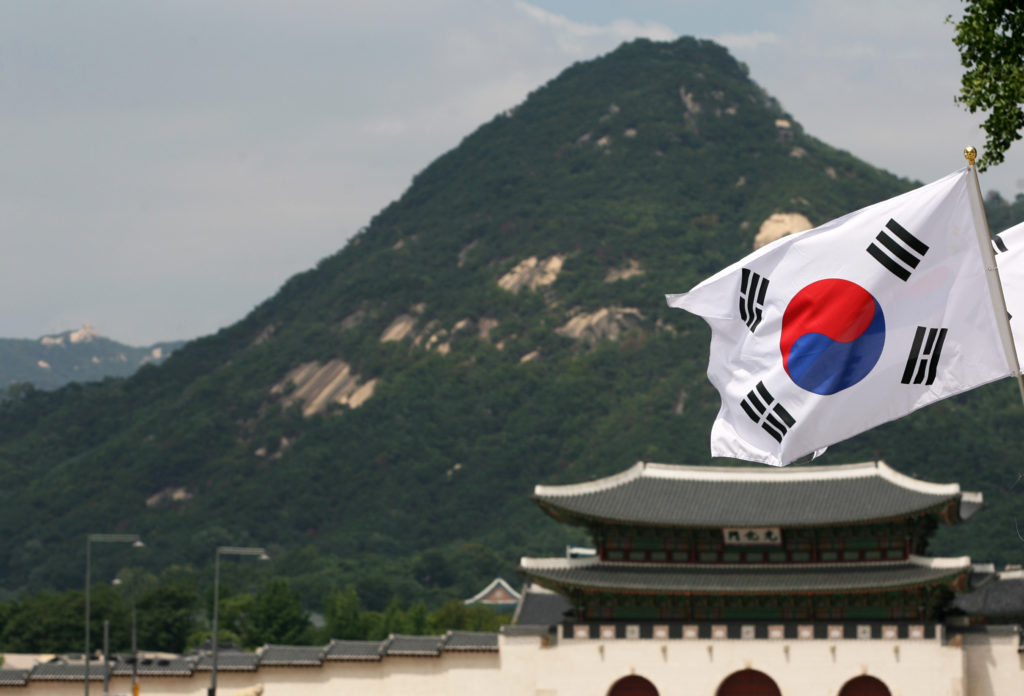The Peninsula
South Korea and Its Evolving Response to Refugees
Published November 17, 2016
Category: South Korea

By Christopher Hurst
Recent headlines around the world have highlighted the growth of refugees worldwide. There have been calls from the UN for the rich nations of the world to step up and help take in many of these people fleeing war and persecution from places in the Middle East, Africa, and Southeast Asia. In many of these nations, including South Korea, this call to take in refugees has created a heated public discussion. To see how this refugee crisis has affected South Korea, it is important to not only look at the present but look at the past and see how South Korea’s refugee policy has evolved.
Following the Korean War, South Korea was extremely poor. In the 1960’s the per capita income was only $64 person. In fact, for much of the post-Korean war era, North Korea was as rich, if not a bit richer than South Korea. During this time, South Korea did not have to worry about refugees trying to enter the country. Then following the 1970’s and the “Miracle on the Han”, South Korea greatly surpassed North Korean to become one of the wealthiest nations in the world. South Korea is currently the 11th largest economy by GDP.
The news of South Korea’s economic miracle might have made business headlines, but it did not seem to affect the number of refugees coming to Korea. Between 1994 to 2003, South Korea only received 251 applications for refugee status. Following a bigger push by the Korean government at the start of the 21st century to expand worldwide interest in Korean food and entertainment (known as Hallyu or the Korean Wave), Korean prosperity became known far and wide. By 2012, the Korean government received 1,143 applications for refugee status.
The influx of refugee applications created an issue for a South Korean refugee system that was not created to handle such a large number of refugees at once. South Korea became a signatory to the UN Convention Relating to the Status of Refugees in 1992. While implementing the convention, the government only made cursory changes to South Korean laws, never imagining large numbers of refugees outside of North Korea would try to get into the country. Under the pre-2013 system, refugees could wait 3-4 years for an answer on their application while not being allowed to work or receive benefits during this time. Nearly 5,500 people submitted refugee applications between 1992 and 2012, but only 329 were accepted. In 2013, the Korean government enacted Law No. 11298, the Refugee Act. This was a ground-breaking law as Korea became the first Asian country to have an independent law for refugee protection. The law mandated the government reach a decision on a refugee within 6 months from the start of an application, allowed applicants to stay in the country until they receive an answer on their status, and gave refugees the same benefits that Korean nationals receive from the government. One of the most important features of the law allows refugees to claim their status at the airport, instead of needing a valid visa to enter the country.
While the passage of this law advanced refugee rights in South Korea, the implementation of it has not. The past two years has seen an increase in the amount of Syrian refugees applying for asylum in Korea. In 2014 President Park Guen Hye promised to help resettle many of these refugees in Korea. However, as of this past summer, only 3 Syrian refugees have been resettled. Another 670 Syrians have been given “humanitarian visas”. Unlike a refugee visa, these visas must be renewed annually and limit their work opportunities along with the state benefits they can receive. They are also not allowed to have family members join them in Korea. Embassy and immigration officials have also made it harder for people trying to reach Korea to claim refugee status. Officials have stated that the spat of terrorist attacks in Europe over the summer has made the public more wary of Muslim immigrants.
While many Syrian refugees face obstacles as they try to gain recognition in South Korea, the Korean government is trying to continue to move their refugee policy forward. In recognition of this, earlier this month, South Korea accepted 34 Myanmar refugees. This is part of a pilot program testing the effects of a refugee resettlement plan that offers language and cultural classes. The government will run this pilot program until the end of 2017. It will be continued based on refugee integration in Korean society along with public support of the program.
Refugees are polarizing topic no matter the country. As the world struggles to support the ever-increasing number of refugees, South Korea will play an important role. With growing interest in Korean entertainment and food, more people will learn of the “Miracle on the Han” and aspire to be a part of it. Though it has faced trouble in accepting its new role as preferred destination for refugees, South Korea has shown the ability to meet the responsibility of its role.
Christopher Hurst is an intern at the Korea Economic Institute of America and a graduate of the University of Illinois at Chicago. The views expressed here are the author’s alone.
Photo from the Republic of Korea’s photostream on flickr Creative Commons.
